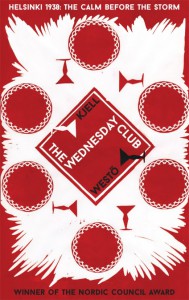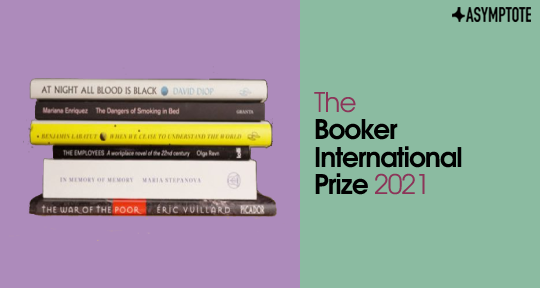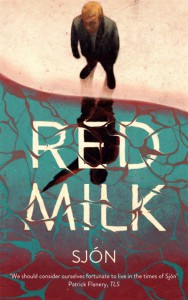Around the world, the way we read is changing: Eva Wissting digs into book sales data in Sweden and finds a spike in digital subscription services amid the pandemic, Peera Songkünnatham reports that Thai poets are reinventing a classic form, and Allison Braden rounds up a slew of Women in Translation Month events. The annual celebration, dedicated to shaking up the canon, makes for a perfect moment to envision the heady, vivid future of literature.
Eva Wissting, Editor-at-Large, reporting from Sweden
A literary project called Bokbastionen (“The Book Bastion”) is finally about to launch in Sweden. The Swedish Arts Council has granted Svenska Bokhandlareföreningen, an association of Swedish booksellers, 400,000 SEK to support in-store events with authors. Although it was the challenges posed by the pandemic that led to the idea of supporting booksellers, coronavirus restrictions have delayed its start because gatherings have not been possible until now. Finally, the first event supported by the project will be held this coming week at a poetry festival in picturesque Söderköping. The initial plan for Bokbastionen included twenty author events this year, but about half of these will spill over into next year instead. The interest to host events has been particularly large among smaller, independent bookstores, which now are looking for ways to create interest among readers and book lovers.
Even though the pandemic has had severe consequences for much of the cultural sector, book sales have had a positive development in Sweden, according to a new report from the Swedish Publishers’ Association. In the first half of 2021, overall book sales have increased by over 10 percent, but there is an ongoing shift between sales channels. The largest growth is in digital subscriptions with almost 20 percent, followed by an almost 15 percent increase in online bookstores. Physical bookstores, on the other hand, have had an 8 percent decrease in sales during the first half of this year. Both digital and printed books increased in sales, by 14 percent and 7 percent respectively, indicating that ebooks are not replacing physical books. Out of all book sales in Sweden, almost 80 percent take place online—50 percent through online bookstores and 28 percent through digital subscriptions. The report concludes that book sales have been greatly influenced by the pandemic. More customers have turned to online options, including digital subscription services. Though there are more bookstores closing down permanently than there are starting up, readers seem to be returning to physical bookstores as vaccination rates increase. READ MORE…

















What’s New in Translation: August 2021
New work this month from Lebanon and India!
The speed by which text travels is both a great fortune and a conundrum of our present days. As information and knowledge are transmitted in unthinkable immediacy, our capacity for receiving and comprehending worldly events is continuously challenged and reconstituted. It is, then, a great privilege to be able to sit down with a book that coherently and absorbingly sorts through the things that have happened. This month, we bring you two works that deal with the events of history with both clarity and intimacy. One a compelling, diaristic account of the devastating Beirut explosion of last year, and one a sensitive, sensual novel that delves into a woman’s life as she carries the trauma of Indian Partition. Read on to find out more.
Beirut 2020: Diary of the Collapse by Charif Majdalani, translated from French by Ruth Diver, Other Press, 2021
Review by Alex Tan, Assistant Editor
There’s a peculiar whiplash that comes from seeing the words “social distancing” in a newly published book, even if—as in the case of Charif Majdalani’s Beirut 2020: Diary of the Collapse—the reader is primed from the outset to anticipate an account of the pandemic’s devastations. For anyone to claim the discernment of hindsight feels all too premature—wrong, even, when there isn’t yet an aftermath to speak from.
But Majdalani’s testimony of disintegration, a compelling mélange of memoir and historical reckoning in Ruth Diver’s clear-eyed English translation, contains no such pretension. In the collective memory of 2020 as experienced by those in Beirut, Lebanon, the COVID-19 pandemic serves merely as stage lighting. It casts its eerie glow on the far deeper fractures within a country riven by “untrammelled liberalism” and “the endemic corruption of the ruling classes.”
Majdalani is great at conjuring an atmosphere of unease, the sense that something is about to give. And something, indeed, does; on August 4, 2020, a massive explosion of ammonium nitrate at the Port of Beirut shattered the lives of hundreds of thousands of people. A whole city collapsed, Majdalani repeatedly emphasises, in all of five seconds.
That cataclysmic event structures the diary’s chronology. Regardless of how much one knows of Lebanon’s troubled past, the succession of dates gathers an ominous velocity, hurtling toward its doomed end. Yet the text’s desultory form, delivering in poignant fragments day by elastic day, hour by ordinary hour, preserves an essential uncertainty—perhaps even a hope that the future might yet be otherwise.
Like the diary-writer, we intimate that the centre cannot hold, but cannot pinpoint exactly where or how. It is customary, in Lebanon, for things to be falling apart. Majdalani directs paranoia at opaque machinations first designated as mechanisms of “chance,” and later diagnosed as the “excessive factionalism” of a “caste of oligarchs in power.” Elsewhere, he christens them “warlords.” The two are practically synonymous in the book’s moral universe. Indeed, Beirut 2020’s lexicon frequently relies, for figures of powerlessness and governmental conspiracy, on a pantheon of supernatural beings. Soothsayers, Homeric gods, djinn, and ghosts make cameos in its metaphorical phantasmagoria. In the face of the indifferent quasi-divine, Lebanon’s lesser inhabitants can only speculate endlessly about the “shameless lies and pantomimes” produced with impunity. READ MORE…
Contributors:- Alex Tan
, - Fairuza Hanun
; Languages: - French
, - Hindi
; Places: - India
, - Lebanon
; Writers: - Charif Majdalani
, - Geetanjali Shree
; Tags: - Beirut 2020 explosion
, - diary
, - disaster
, - Indian Partition
, - motherhood
, - recovery
, - social commentary
, - trauma
, - womanhood